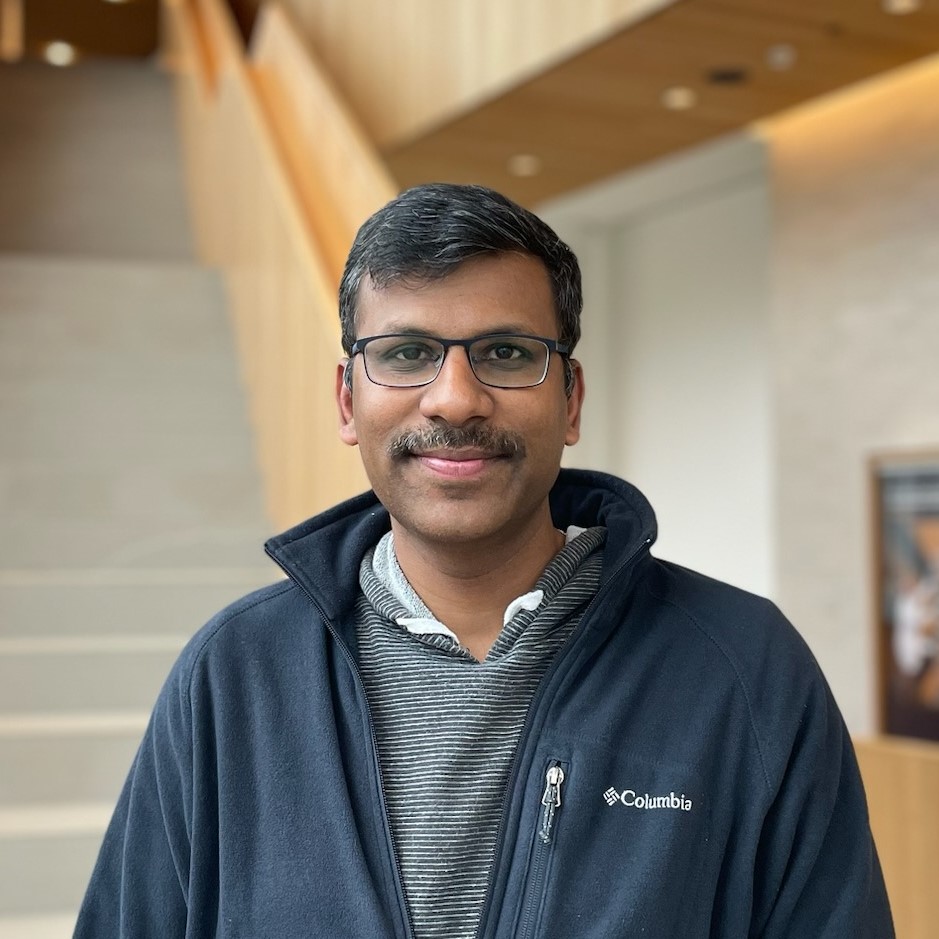Research Focus Teams
Cancer
Research Interests
Anatomical Pathology, Cancer, Multiomic Tumor Profiling, Personalized Medicine, Tumor Heterogeneity
Departments
School of Biomedical Engineering
Bio
Dr. Govind Kaigala's interests are in the areas of microscale fluid control, microscale molecular assays and technologies for personalized medicine. He is passionate about translational clinical/medical research. With his team, he strives to bring quantitation in biology and medicine by leveraging bioinstrumentation and micro-and nanosystems. He joined UBC in the Summer of 2022. Previously he was at the Research laboratory of IBM in Zurich for about 11 years where he was a Scientist and a Principal Investigator leading a team of researchers in the area of Precision Diagnostics. He earned his PhD from the departments of Electrical and Computer Engineering and Oncology in 2009 from the University of Alberta where he developed microfluidic systems for genetic analysis. He completed an NSERC Postdoctoral Fellowship at Stanford University between the Microfluidics Laboratory in the Dept. of Mechanical Engineering and Dept. of Urology at the Stanford Medical School (VA Hospital).
He served as primary (or co-primary) advisor to > 30 trainees, and co-published > 80 journal articles, 1 book and > 45 patent families. His mentees have received in total > 30 awards.
- 2023 American Chemical Societies - Analytical Chemistry Young Innovator Award
- 2020 Fellow, Royal Society of Chemistry, UK
- 2020 IBM Research Division Accomplishment Award for work on Intelligent and quantitative immunostaining of tumor tissue sections, Switzerland
- 2018 IBM Master Inventor, Switzerland
- 2018 IBM Eminence and Excellence Award (Theme: Dare to create original ideas), Switzerland
- 2014 IBM Research Division Accomplishment Award for work on Microimmunohistochemistry, Switzerland
- 2014 University of Alberta Alumni Horizon Award, Canada
- 2011 Ramalingaswami Fellowship, India (declined)
- 2009 NSERC Post-Doctoral Fellowship, Canada
- 2008 Alberta Ingenuity Ph.D Graduate Studentship in Nanotechnology, Canada
- 2007 J. Gordin Kaplan Graduate Student Award, Canada
- 2006 Walter H. Jones Graduate Fellowship, Canada
- 2006 National Science and Engineering Research Council (NSERC), Post Graduate Award, Canada
- 2005 Translational Research Training in Cancer Fellowship, Canada
- 2005 National Research Council (NRC) Graduate Research Scholarship, Canada
- 2001 J. N Tata Endowment Scholarship, India
